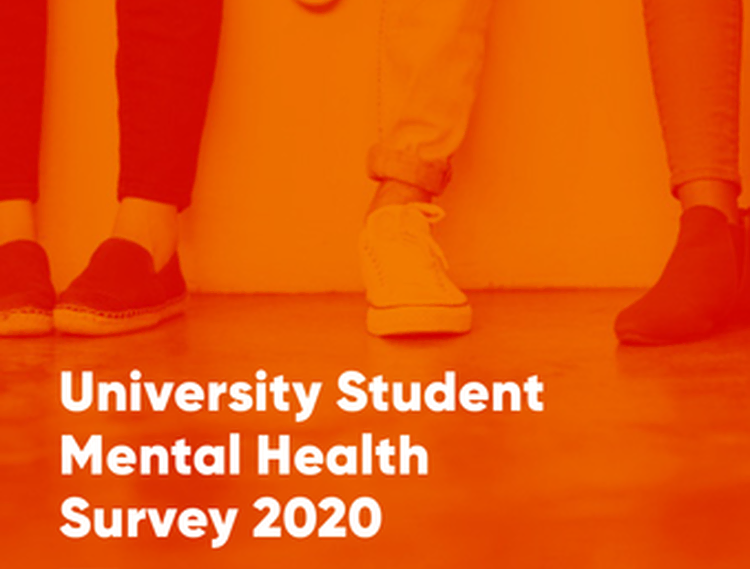Mental health struggles among students on the rise reveals significant new report

The number of students struggling with a mental health problem is increasing according to The Insight Network and student organisation Dig-In. The largest mental health survey ever conducted on UK university students releases its annual data today (11 Mar), revealing an 8% rise year-on-year of those with a serious personal, emotional, behavioural or mental health problem for which they needed professional help. The figure now stands at almost half of the student population (42%).
Furthermore, 27% of students have had one or more official mental health diagnoses, a 5% rise year-on-year (from 22%). And 8 in 10 (78%) of those diagnosed have concealed their symptoms due to stigma. The most common mental health diagnoses were depression and anxiety disorders (12% and 11% of the sample, respectively), followed by bipolar disorder (0.5%). Anxiety disorders encompass OCD, general anxiety disorders and phobias.
In addition, 82% of students are aware of the support services offered by their university but worryingly only 13% have accessed them. However two thirds (63%) of students said that if they had online access to a mental health professional, they would make use of this service raising real questions about the most effective methods of support, and whether services need to adapt digitally with this in mind.
The Insight Network and student organisation Dig-In have collaborated for three years now, building a large-scale picture of UK students’ mental health by exploring prevalence rates, risk factors and specific at-risk groups. Plus levels of anxiety, loneliness, substance misuse, and thoughts of self-harm. All with the aim of establishing themes year-on-year.
Dr Stephen Pereira, consultant psychiatrist and Director of the Insight Network comments: “Starting university can be a major transitional period for young people and one in four students experience mental health problems each year. Students may be vulnerable to psychological difficulties due to the interaction of a vast array of university-specific challenges. These stressors include moving away from home for the first time, establishing new networks, developing new identities, new intellectual demands, and financial strains. Therefore, it is pertinent that as a society we support and educate students on how to recognise stress, the early warning of mental health problems and where to seek support. The work Dig-In has done to seek these findings out from the student population is a very important step.”
Christopher Platt, founder and CEO of Dig-In adds: “As the provider of the official student welcome box to over 160 universities and accommodation providers and with over 180k Dig-In members, Dig-In is in a unique position with privileged access to students. We want to use this as a force for good.
Having experienced challenges with my mental health, this is a cause close to my heart. I set out in 2017 to conduct the largest ever study into student mental health. To date, over 80,000 students have taken part in the study. I hope to further raise the profile of mental health issues in students and collaborate with key stakeholders and the NHS in this area to improve support services, the engagement with those services and help ensure every student has the opportunity to reach their full potential.”
Dr Stephen Pereira concludes: “Mental health problems can cause severe emotional, behavioural and physical health problems. In order for universities and government agencies to provide effective and efficient psychological support it is crucial to understand the scale and psychological makeup of the student mental health challenge in the UK.
There are some causes for concern about student mental health detailed in this report. Mental health issues can be effectively managed if individuals are able to access the right treatment in adequate time. We hope that these findings will serve as both a call to action and a guide for students, their family and friends plus universities, the NHS and government agencies to work together to meet students’ mental health needs.”
Brian Dow, CEO of Mental Health UK said,
“How can it be that, for all the progress we’ve made in the last decade, so many young people still feel the need to conceal their mental illness for fear of the reaction from other people? Dig-In’s report reminds us that, no matter how readily available you make services, the stigma of mental illness can still present a very real challenge for many.
“Young people go to university during a period in which they are particularly at risk of developing mental illness. With the right support networks, many students can learn to manage the effects of mental illness in a positive way that minimises any disruption to their studies. Without that help, an illness can develop and become more severe, and have long lasting effects for the rest of their life. It’s vital that we continue to make every effort to ensure that the right help is available to those that need it.”
Stephen Buckley, Head of Information at Mind, adds:
“Going to university can be an exciting time, but it brings new pressures – such as moving away from home for the first time and managing money. It’s concerning to hear the scale of poor mental health among students, and the numbers who feel unable to access support.
“Any student experiencing a mental health problem at university should be given the support they need and be treated with dignity and respect. Students should have access to university services which can support them robustly, both to stay well and to make sure academic pressures don’t have a negative impact on their wellbeing.”











Responses